Today I would like to talk about the in line twist element in regards to it's construction within FVD.
The basic principle is centered around the heartlining process within No Limits and FVD that alters the track in a way so as to respond to inputs from the pointlist/spline. When an element constructed with an inverse heat line is exported in spline based formats and imported, the corresponding track is shifted in a way that is halfway between both heartlines. In conjunction with multiple elements, this can be used to create sections of varying heartline within a single track, perfect for building in line twists. For example, by producing elements with a heartline value of -0.5m, the corresponding track once imported will match a heartline of 0m when used with Wing Coaster, as shown in these demonstrations.
It should also be advised that, so far in my testing, only Geometric sections will export correctly, straight sections cannot be used.
Here we see a basic concept. Both a version with heartline of 0 and -0.5 will be made to show the correspondence.
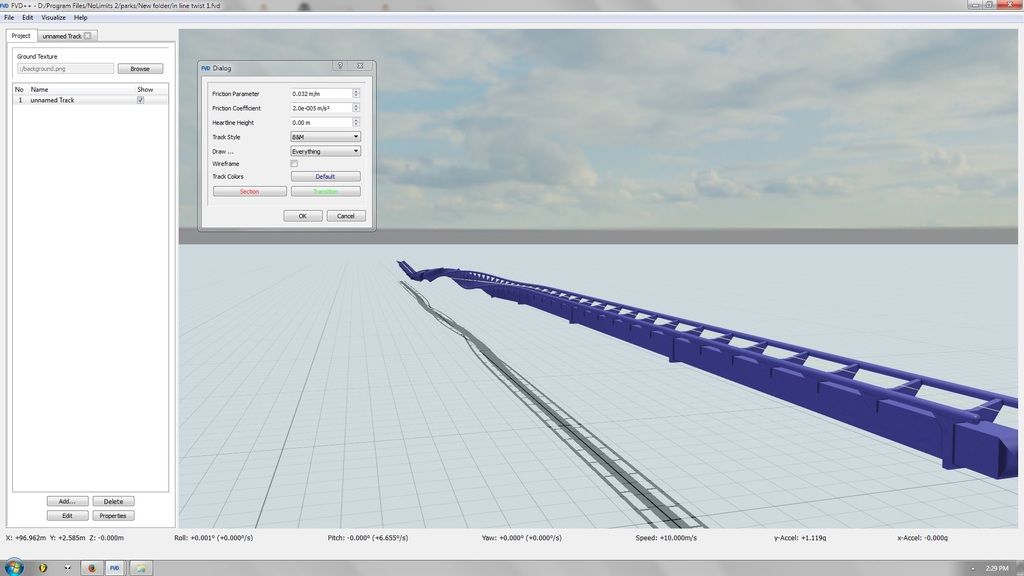
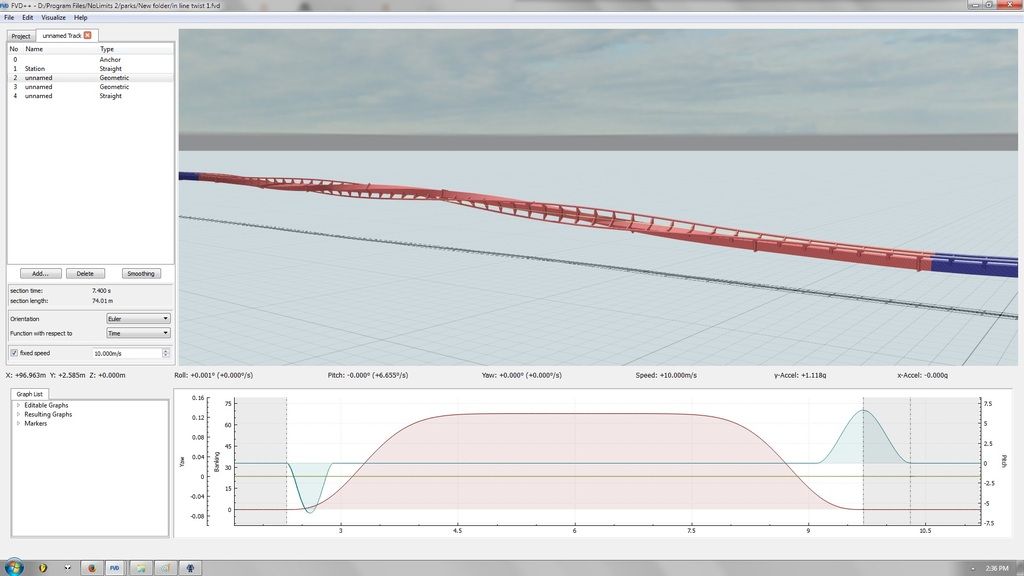
When the heartline value is switched to -0.5, the ending coordinates stay almost identical, only off by 0.001m on the "X" axis. From what is gathered so far, elements without constant speed will most likely result in having a greater variance in ending position. Also, in this example, the 0.001?? offset in roll can be fixed with a "to zero" function in the next segment, which is virtually unnoticeable.
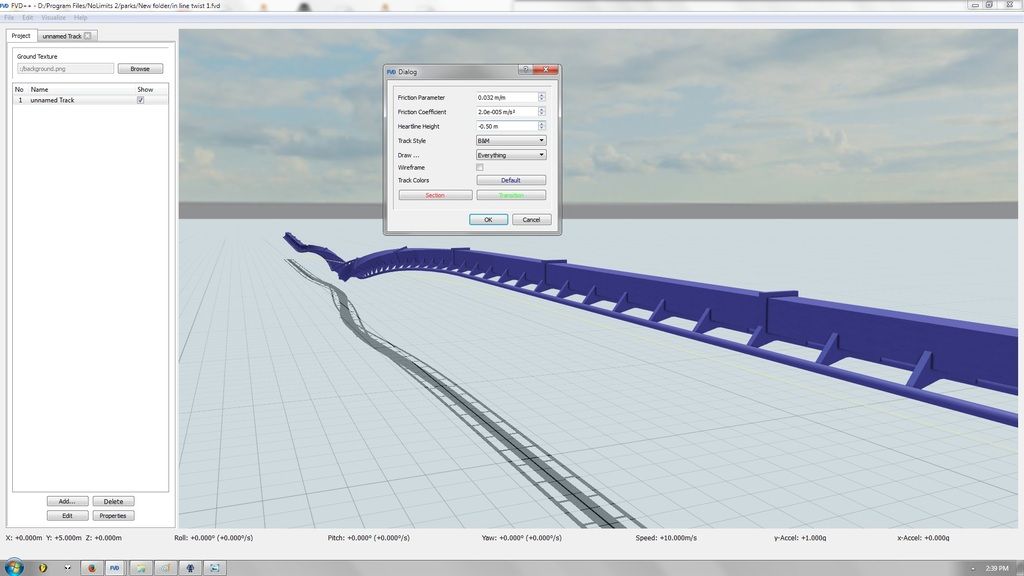
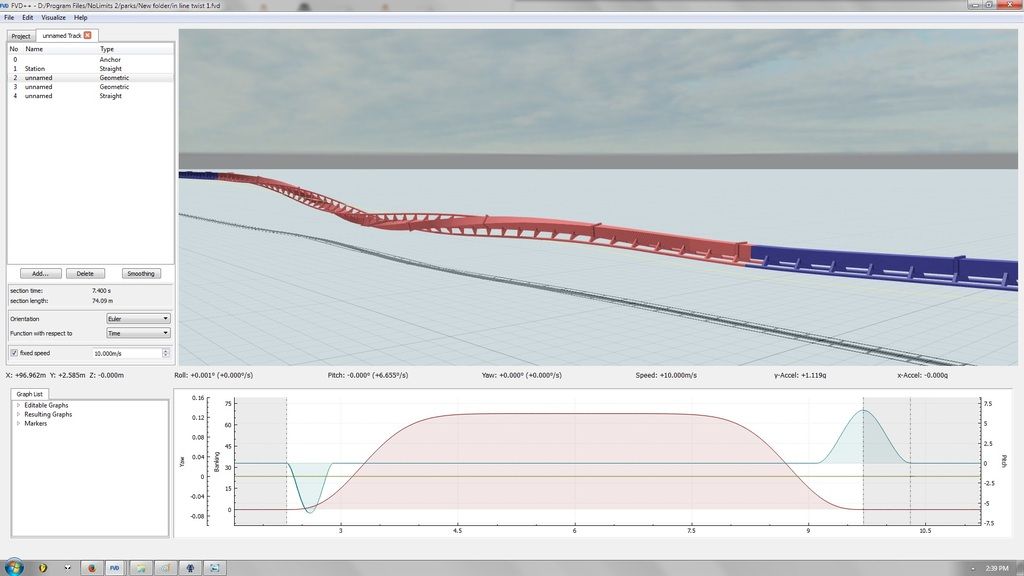
Here we see the first element, constructed with 0m heartline. This was exported via the NoLimits 2 exporter function of FVD, and imported with center of rail spline position.
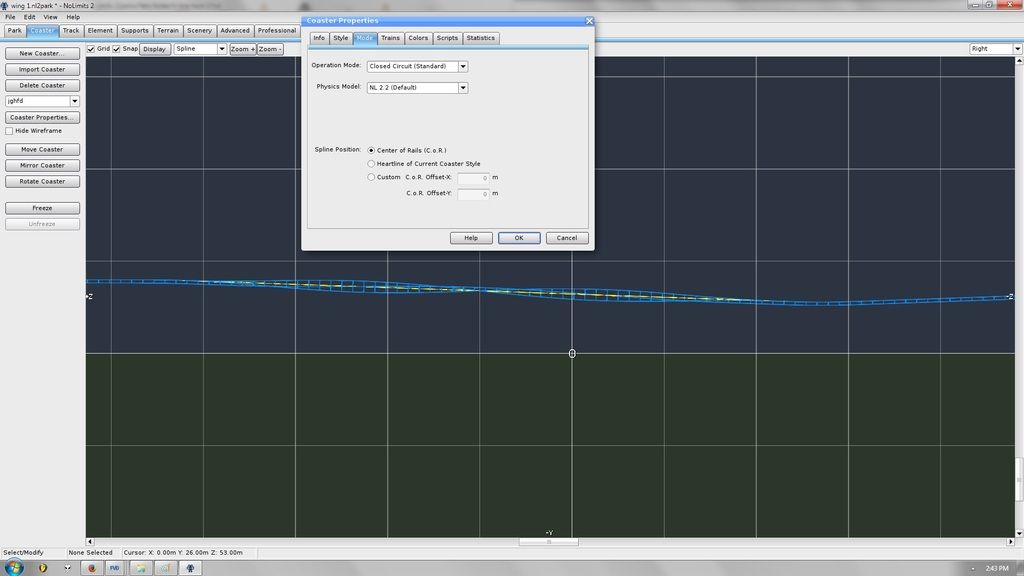
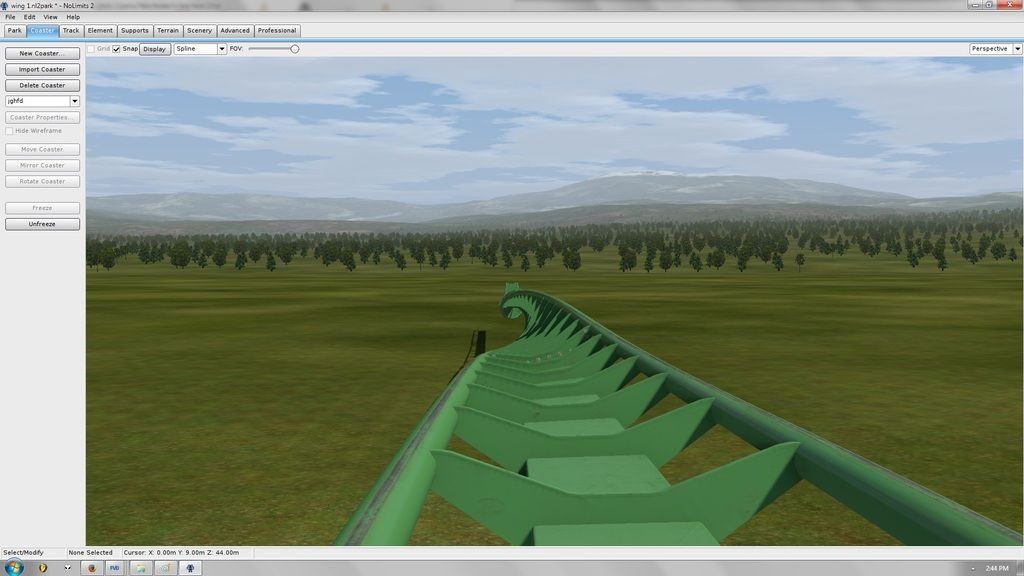
The -0.5m heartline version is exported in either "tangent" mode or "spline" mode and imported in 0.5m track heartline position. Some experimentation with export parameters may be advised. Once moved 0.5m higher in elevation to the other track, they are nearly identical.
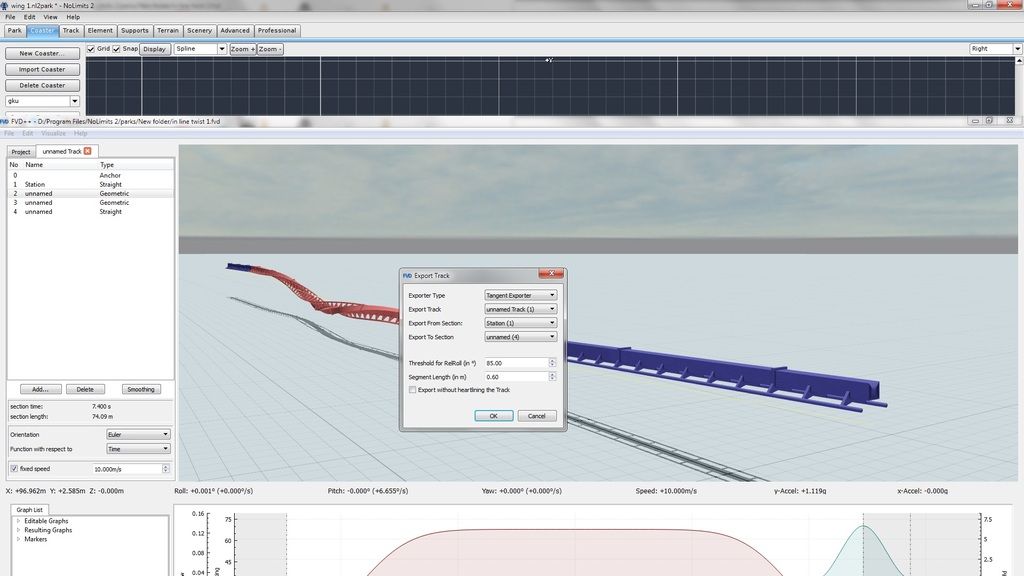
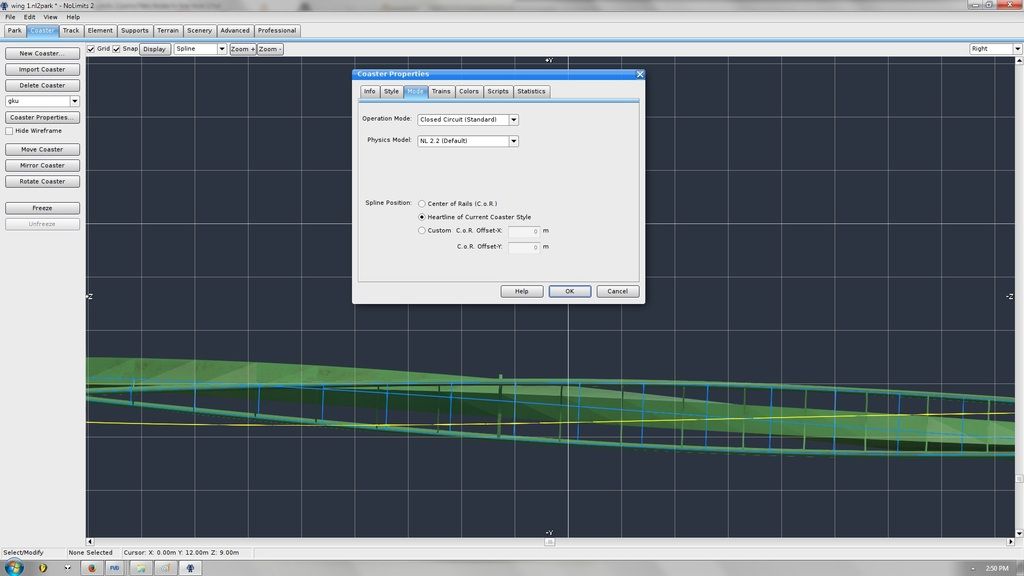
Both coasters frozen in side view.
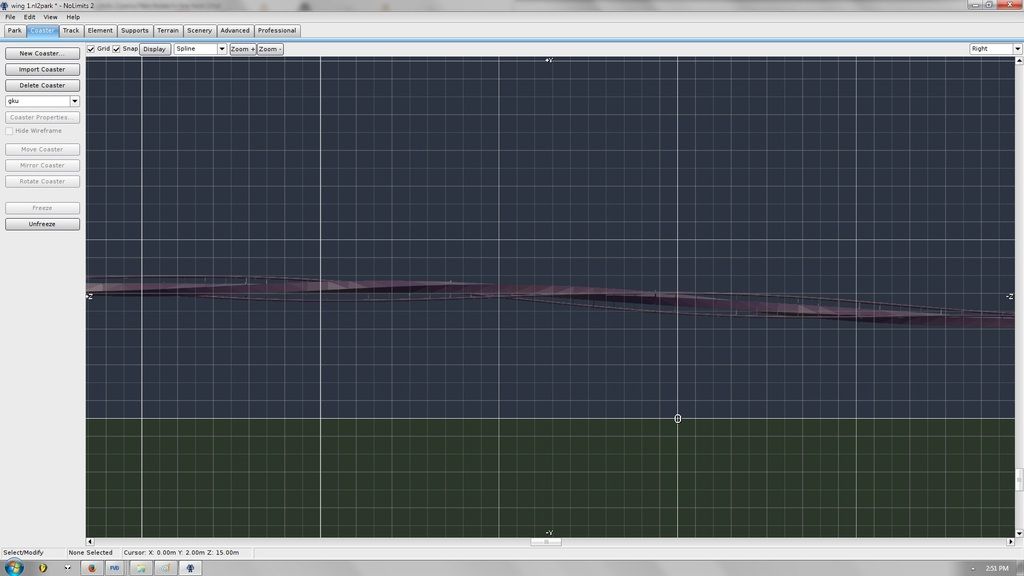
Skip to 1:51 for off-ride angle if so inclined.
Here we see an example of a Furius Baco style roll entrance. For this, the entire ride will be constructed in -0.5m heart line, despite being a wing coaster, and when fully processed, the heart line of all track, except the roll, will be 0.5. While the shaping may be slightly different than would be constructed with a 0.5m heartline from the get go (as in the next example), it will still be great. The benefit of this method is the ability to add an in line twist in the middle portion of the ride with a very smooth transition, in theory.
I may warn that this was a quickly made example.
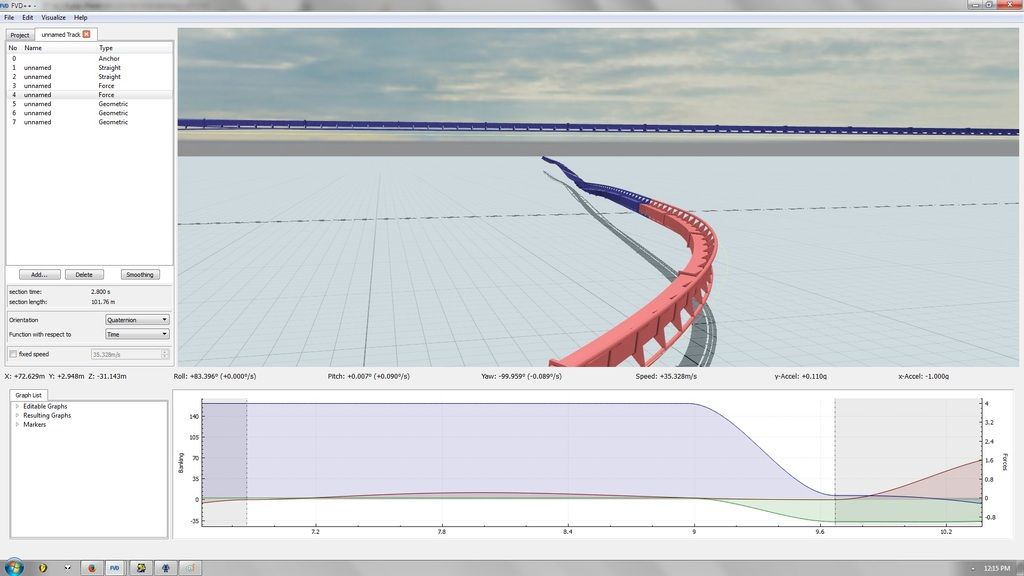
Well it has not been ridden by me personally, it seems from onride videos that there is a quick delay into the roll similar to as constructed above. In this build, it seems far too long and my Guess is that Intamin/Stengel probably had a different shaping method in their software. I would recommend making this section style very short, or perhaps making a transition that is off center significantly.
Roll is at approximately 1:28.
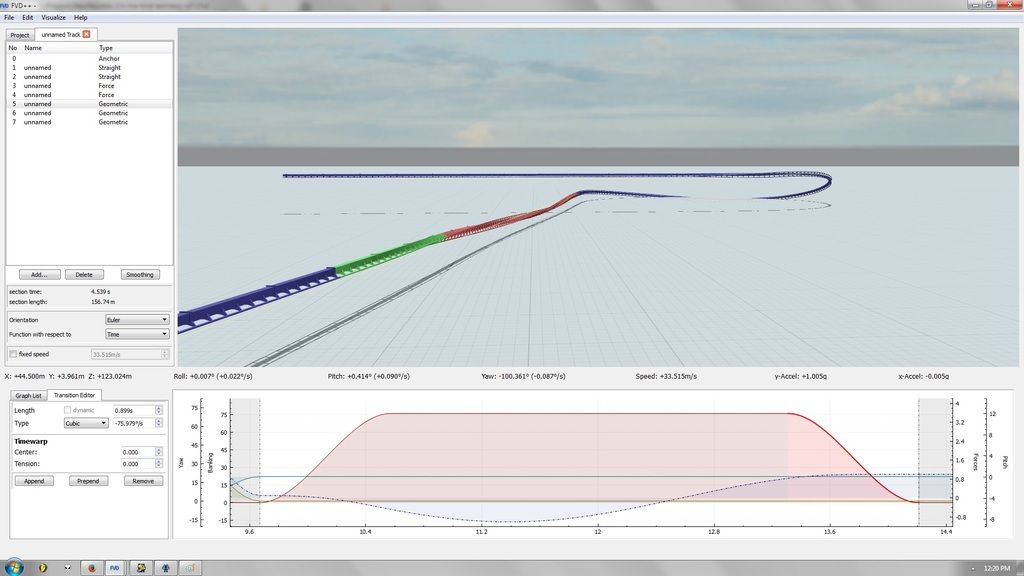
It seems important to line up the values for a smooth transition. Some fiddling may be advised to achieve the direction necessary.
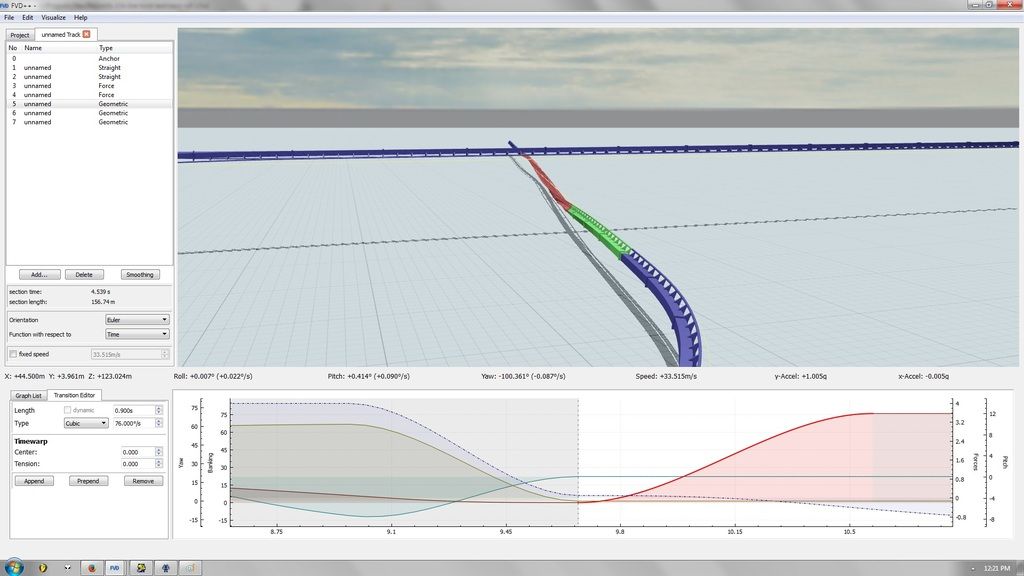
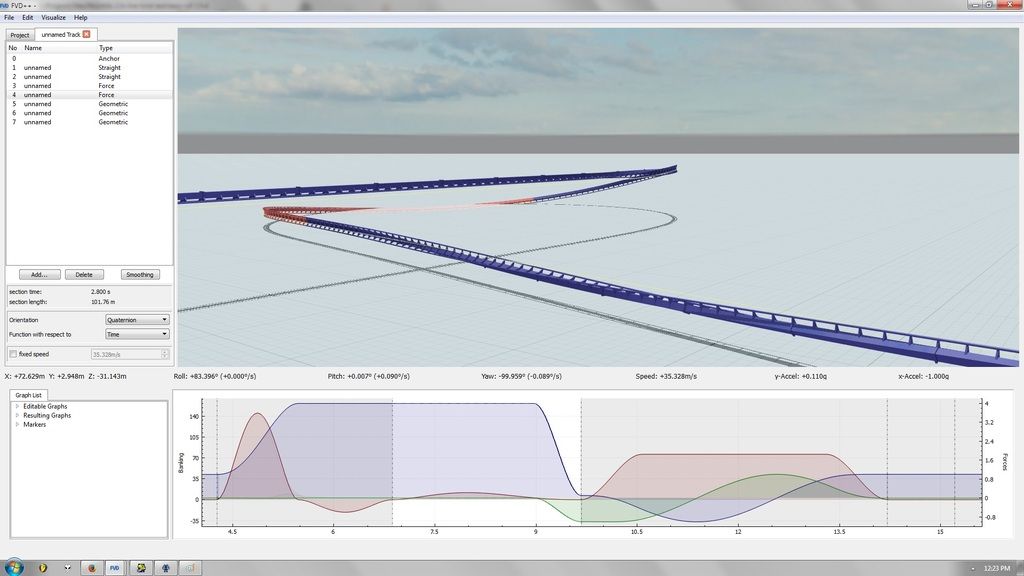
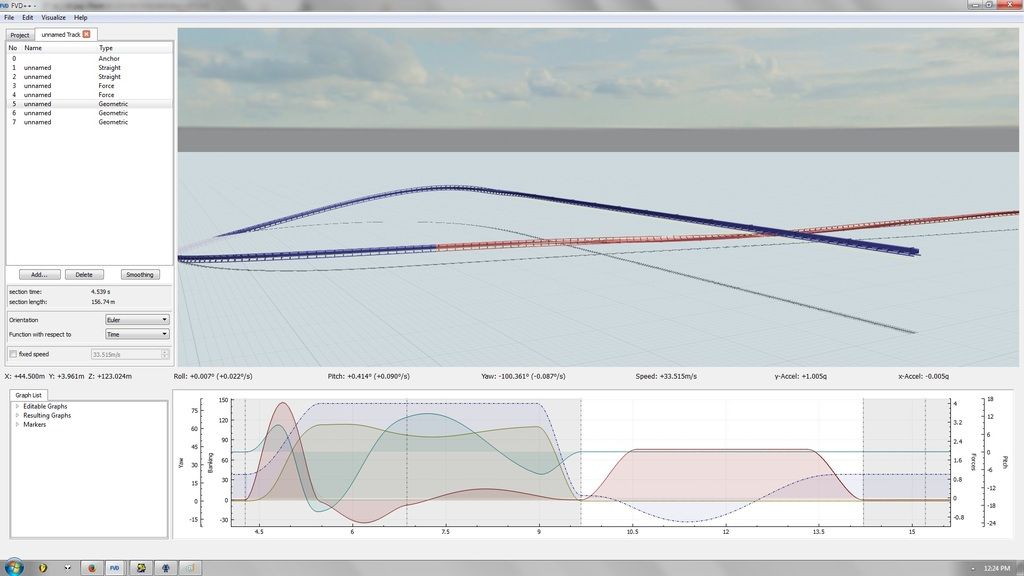
From here, the sections before the lead into the roll will be exported in either spline or tangent format. It seems to me that sometimes only one mode works, although I could be wrong about that. Make sure to "export without heartling the track" as it places the actual heartline at 0, which will then be offset by 0.5m when fully processed.
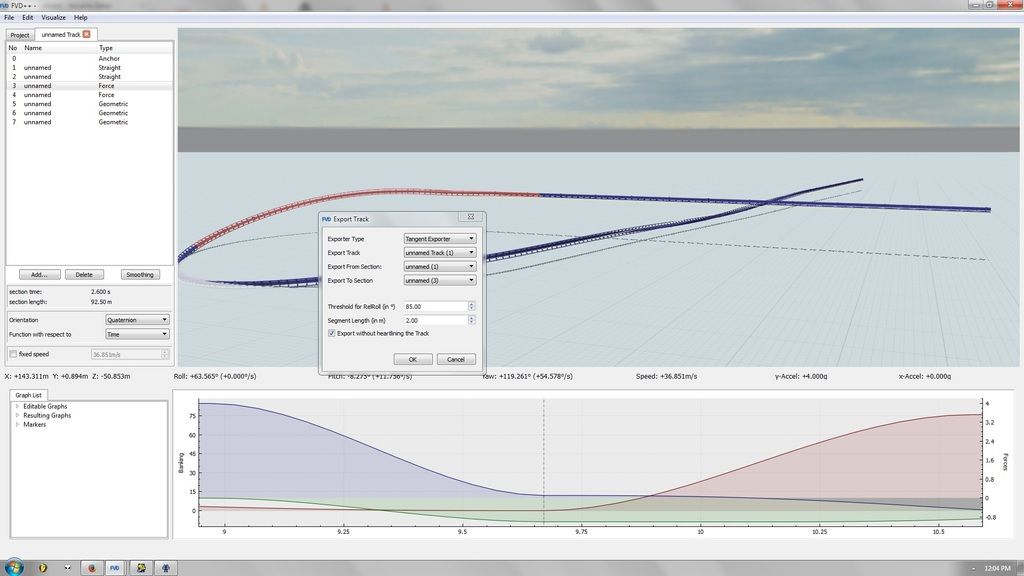
Then, sections containing the lead into the roll, roll itself, lead out, and in this case a brake run, will be exported in either of the two NL1 formats with the heart lining enabled. So far, all of my tests place the roll directly into a straight section, but I see no reason why the exporting method as described could not, in theory, add on a following element. My guess is that the following element is also to be exported without heartlining.
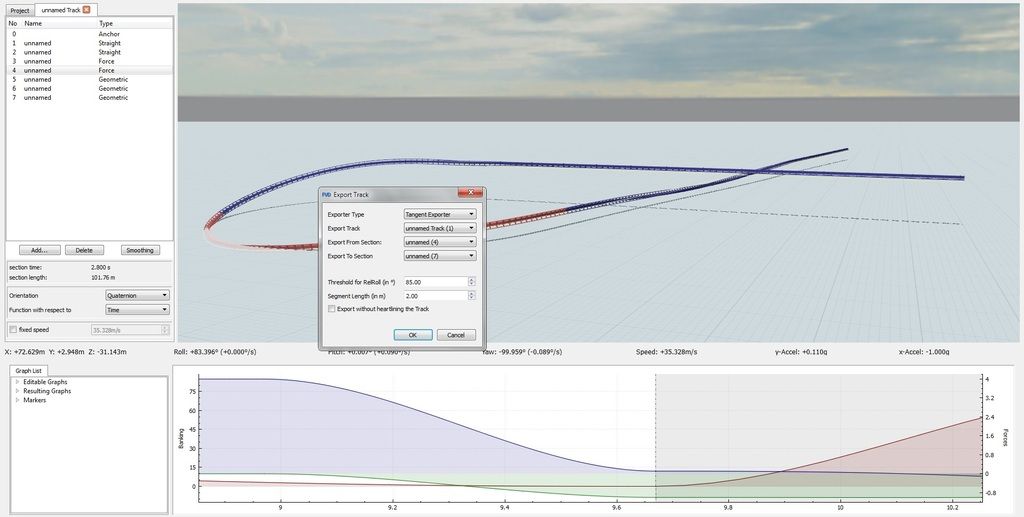
Next, our elements will be imported into NL1 since it uses a center of rails spline based system at all times, ensuring a smooth transition between the heartlined and un-heartlined elements.
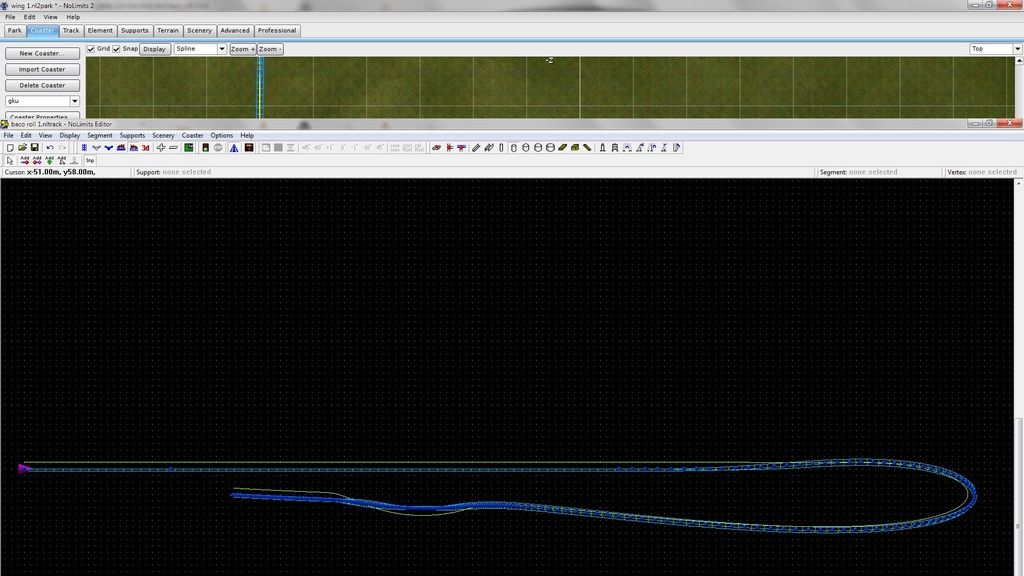
While from here this can be directly imported into NL2, I chose to import into FVD so I could then export as one large element in NL2 format with a much smaller segment length. Before exporting, it might be helpful to set the heartline to the format chosen, in this case 0.5m.
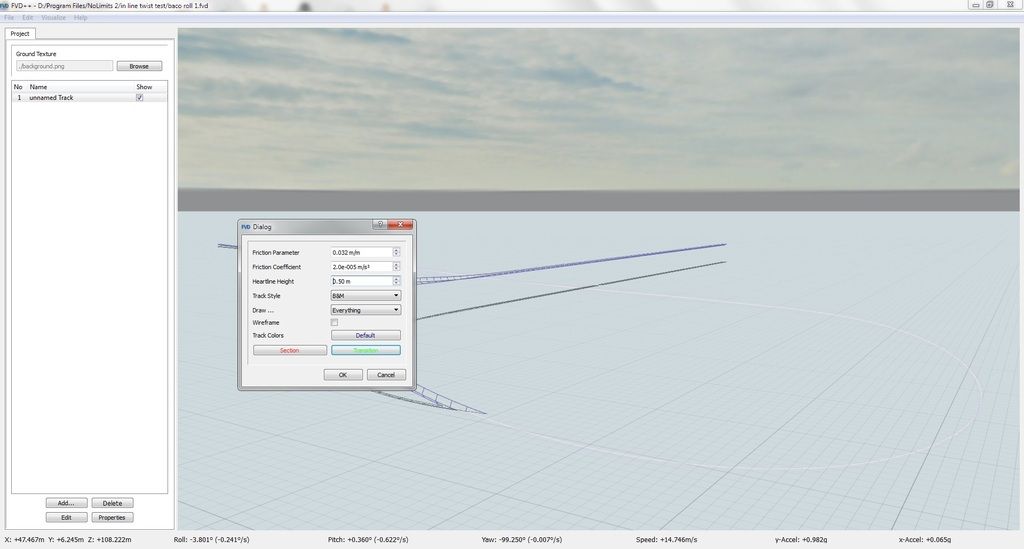
Here is demonstrated the difference between 0m heartline, as when first imported, and 0.5m heartline. The shadows in relation to the grid paint an accurate picture.

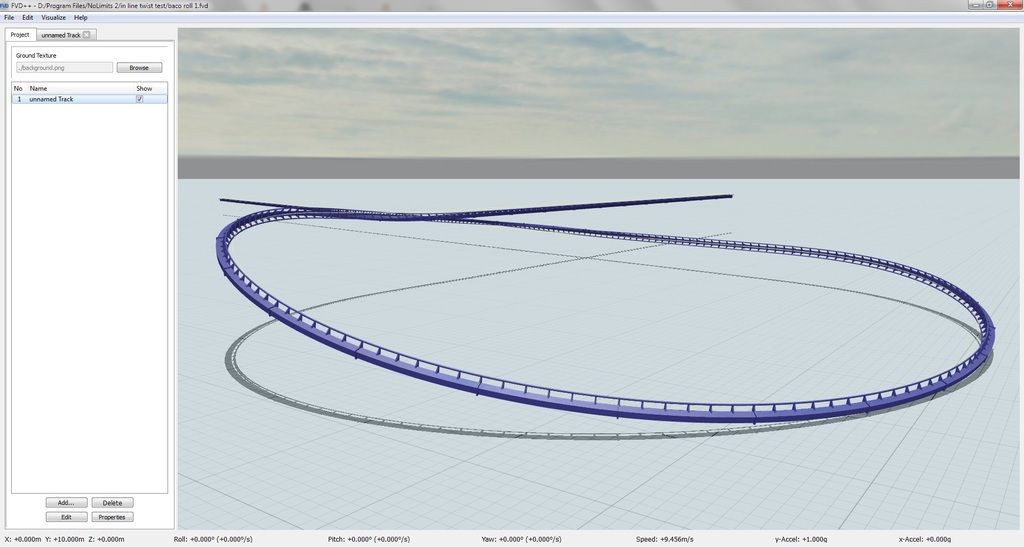
We can see how all elements line up to the intended heartline.
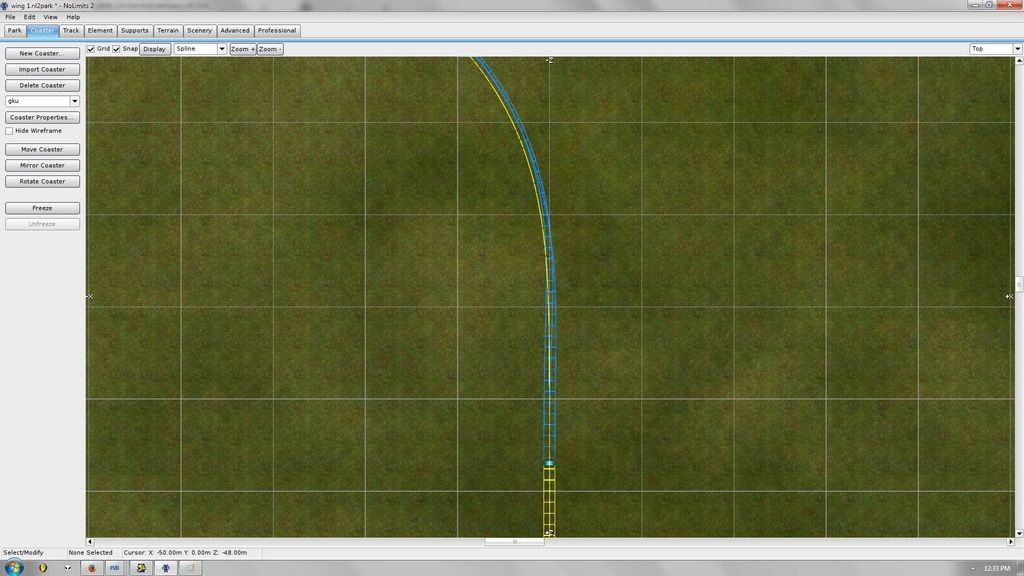
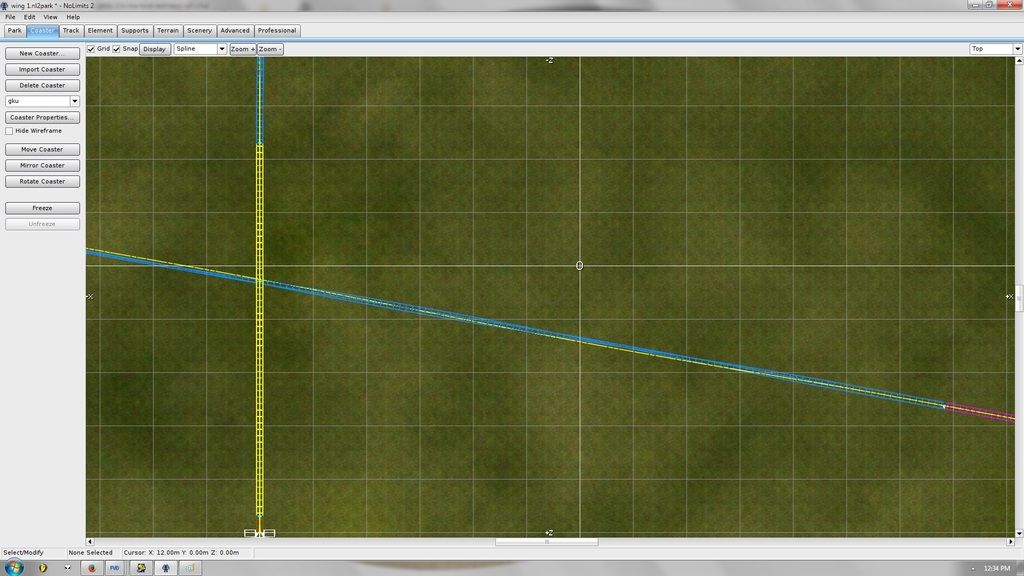
How does it ride? The transition into the twist is too long and the first bank out of the launch is too fast, so excuse those laterals, but it serves well for demonstration purposes. The transition form unheartlined to heartlined elements is unnoticeable and the roll is pretty smooth so overall I'd say it's a successful experiment.
Last example, for now, is an airtime hump into roll where the majority of the track was constructed with 0.5m heartline. A mock up roll was first made to approximate direction and pitch.
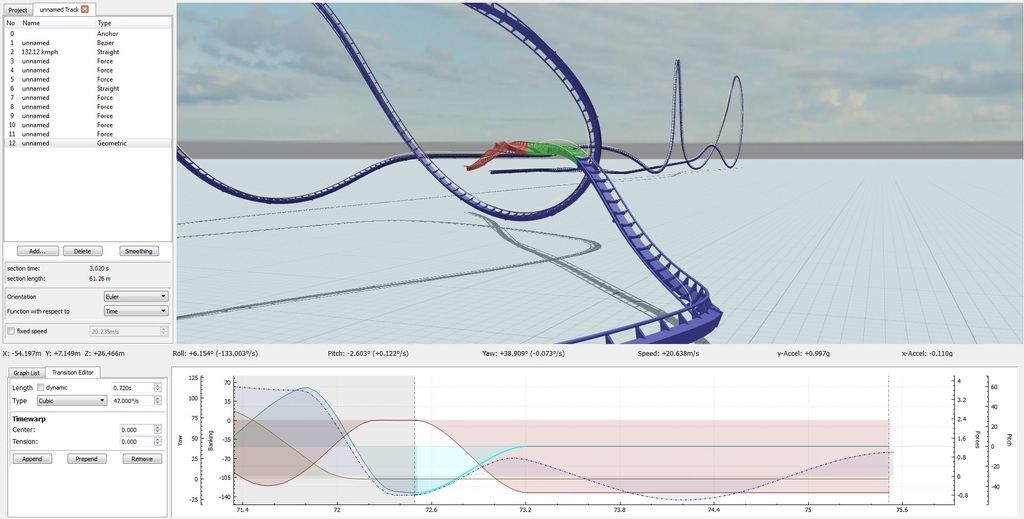
Then, a new FVD file was created with a heartline of -0.5m and the parameters from the would be prepending force segment were applied to the anchor. The element starts with a pitch transition up to 0?? and a roll transition, followed by a flat segment, and finally a roll out and pitch change up segment. Since it wasn't perfectly flat, the following would be straight section for brakes was made into a geometric section with a "to zero" roll and slight pitch change up which is unnoticeable. It also is slightly above the station height by 0.068m, which can be corrected in the following curve section.
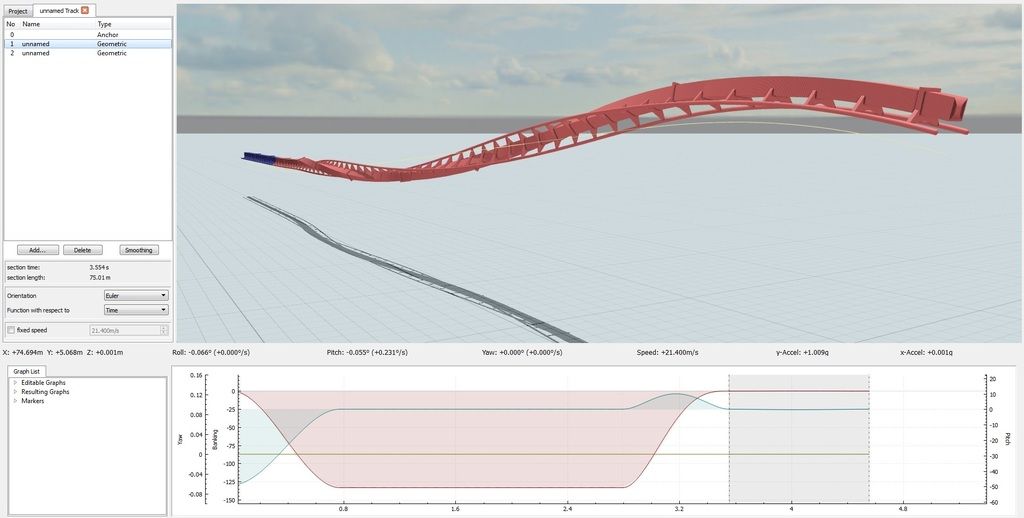
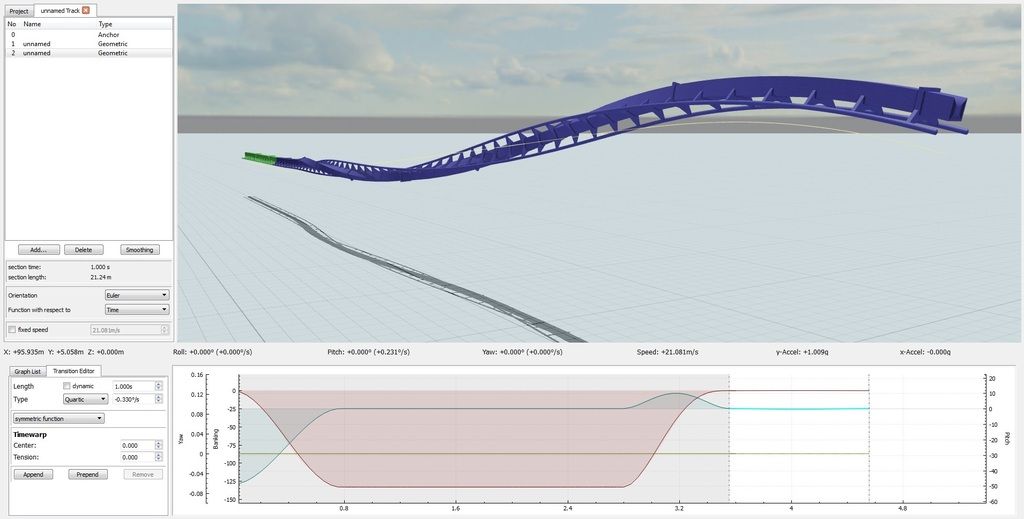
When imported into NL2, the roll element was 0.5m short height wise and slightly farther distance away due to the difference in heartline, unlike the method above. This isn't a big issue however as the roll element can be raised 0.5m to the correct height and the corresponding pump smoothed out.
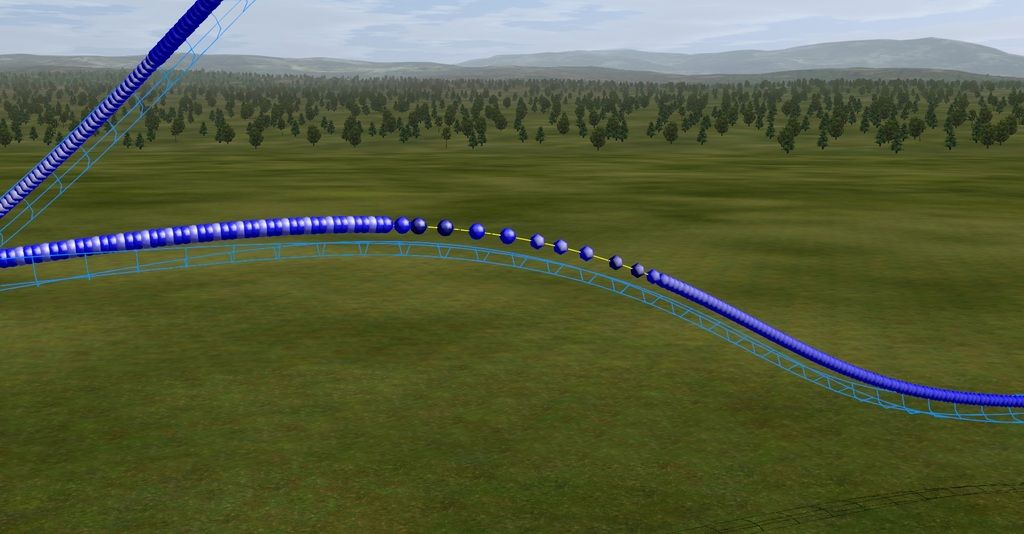
After this, an element using the built in FVD can be made with a length that places the last segment in line with the station. When the nodes in between the previous section and last are deleted, and the last node lowered by 0.068m to the correct height, an excellent midway node for a curve is created. This isn't really necessary or anything, it's just a concept.
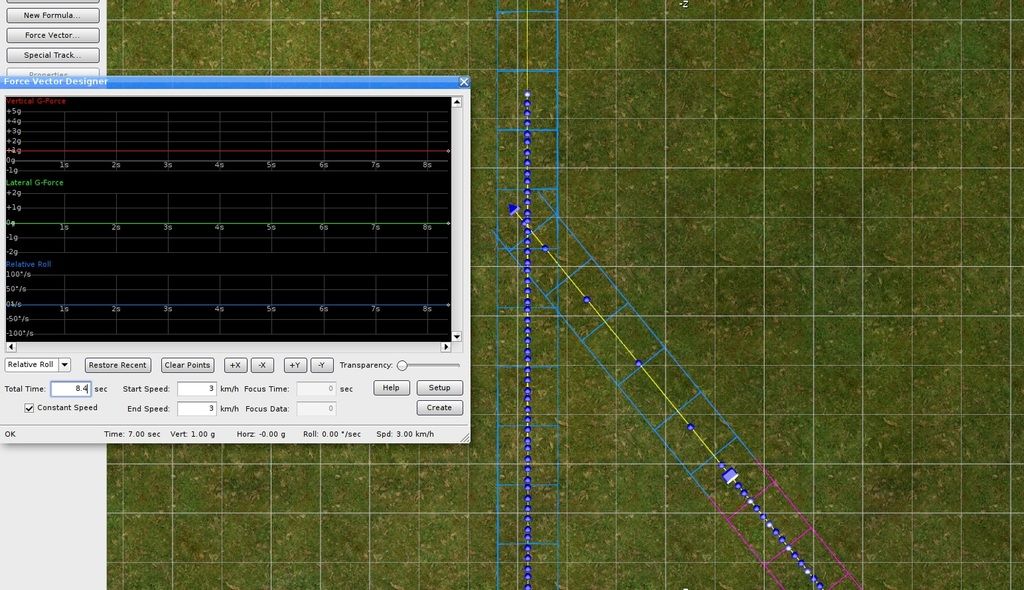
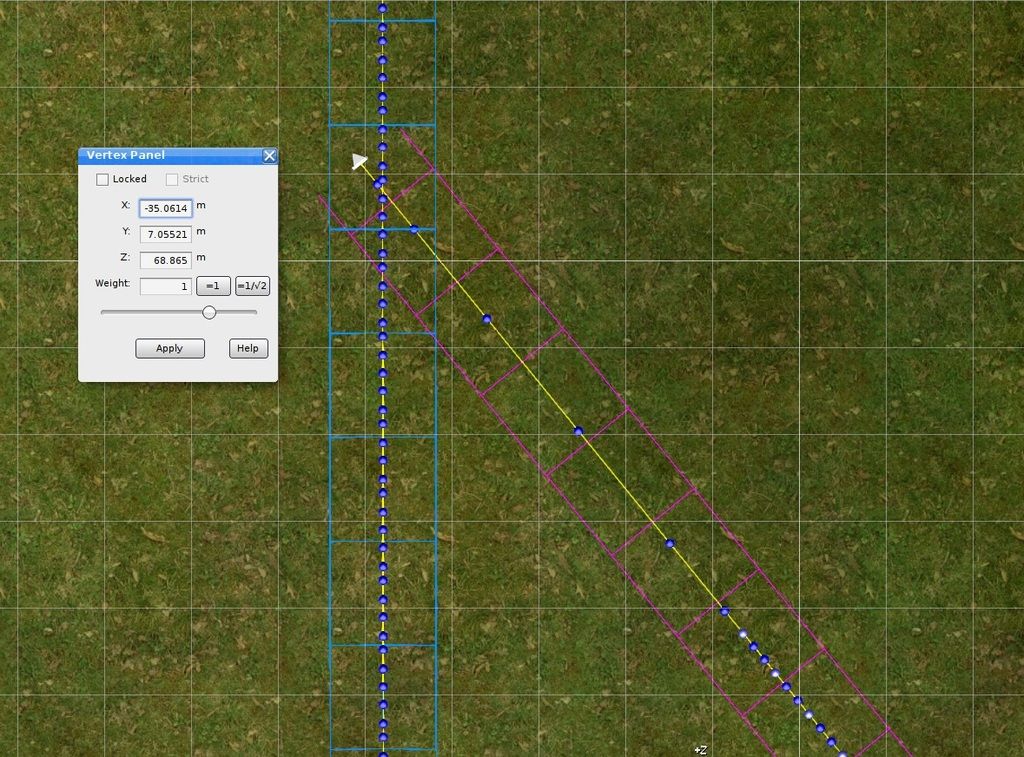
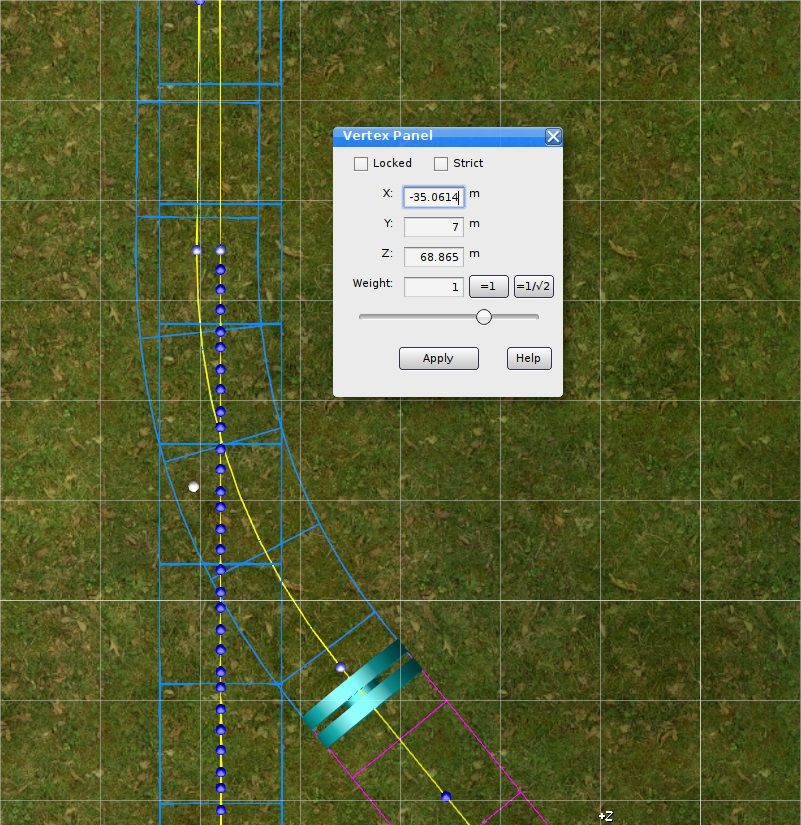
How does it ride? Well, it was way too fast and some trims were needed, I guess that section will be changed. The roll was at 113??/s and the laterals were at like 2.5 or something haha, so I would suggest no more that 70-80??/s max, experiment with it.
Here's a link to some of the files. Some of them were deleted and I doubt anyone will want these, but here it is anyway haha. https://www.mediafire.com/?fh30i5jrki10mkw


